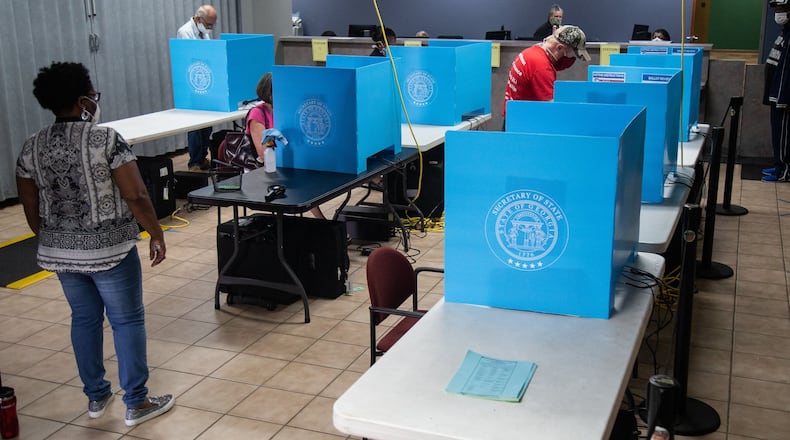The Georgia Supreme Court on Tuesday upheld a Long County election where seven people cast illegitimate ballots, less than the nine-vote margin in the race.
The ruling ends a yearlong case that sought a new election for probate judge after the losing candidate alleged double-voting, nonresident voting and incomplete absentee ballot documents.
The Supreme Court affirmed the trial court’s finding that six people voted twice and one person wasn’t a resident of Long County, located in southeast Georgia. But those improper votes fell short of the number needed to overturn the election.
“Those seven ballots were not sufficient to place the results of the election in doubt given the nine-vote margin of victory in this case,” Justice Carla Wong McMillan wrote in a 7-0 decision.
Former Long County Probate Judge Bobby Harrison Smith lost to Teresa Odum 1,375 to 1,366.
The six people who voted twice cast in-person ballots without their absentee ballots being canceled by election officials, according to evidence from the original trial. The county elections board presented testimony that many voters were confused when last year’s primary election, which included the probate court race, was postponed from May to June because of the COVID-19 pandemic.
One of the people who voted twice has said he wanted “to prove a point” that it was possible to do so.
The elections board acknowledged that one voter was never a Long County resident and shouldn’t have been allowed to cast a ballot. A survey presented at trial showed that the rest of the voters whose residency was questioned lived within Long County and paid property taxes there.
The Supreme Court rejected claims that absentee ballots should have been thrown out because of signature issues.
Though some voters failed to sign their absentee ballot documents and other voters’ signatures didn’t match, the court ruled that the remedy should have been to notify the voter to correct discrepancies, not to automatically reject the ballot.
All voters who had signature issues were found to be eligible to vote in the election, and their absentee ballots accurately reflected their choices, according to the court’s ruling.
About the Author
Keep Reading
The Latest
Featured



